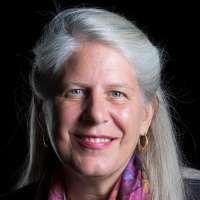
Healthcare professionals are on the frontline of the pandemic crisis that has redefined our age, experiencing fatigue, burnout, and the ever-present risk of infection. How can they sustain their compassionate work?
In this conversation for healthcare professionals, neuroscientist Dr. Tara Swart explores the intersection of neuroscience and Himalayan and South Asian wisdom traditions, looking at what they can teach us about meeting these challenges. Dr. Swart talks with two medical practitioners who battled the erupting crisis in its early, extreme expression: Dr Virat Madia is an Indian-American doctor born into the Jain tradition, and Chime Aboomtsang is a Tibetan-American nurse who caught COVID-19 while undertaking her duties.
The Rubin Museum is offering free admission to healthcare professionals through 2020.

Dr. Tara Swart is a neuroscientist, medical doctor, executive advisor, senior lecturer at MIT Sloan, and author of the best-seller The Source, which has translations in 36 global territories. Tara is passionate about disseminating simple, pragmatic, neuroscience-based messages that change the way people live and work. She advises a small number of individuals via personal recommendation only and speaks at major conferences globally. Tara is an advisory board member for a private equity company, private bank, and health and wellness start-up, and an ambassador for a beauty and well-being brand. For more information and podcasts, videos, and press articles, visit taraswart.com.
Chime Aboomtsang was born in Tibet, brought up in India, and currently lives in Jersey City, New Jersey. She studied Buddhist philosophy in Central Tibetan University in Sarnath, Varanasi, and obtained an Acharya degree with a bachelor of education. She works at a New York hospital as a registered nurse in the Cardiac Telemetry Unit. She is also a board member of the Tibetan Nurses Association of New York and New Jersey.
Dr. Virat Madia is a board-certified emergency medicine physician practicing in the Bronx. After attending medical school at the University of Minnesota, he completed residency at Highland Hospital in Oakland, California, followed by a medical education fellowship at the University of California, San Francisco. Dr. Madia then became an assistant professor at the NYU School of Medicine and served as the assistant program director for the residency program. Dr. Madia has volunteered internationally in Haiti, Bolivia, and Ecuador, and he is committed to equitable access to healthcare on a local and global scale.
Science programs at the Rubin this year have been supported by Science Sandbox, an initiative of Simons Foundation, and by the New York City Department of Cultural Affairs in partnership with the City Council.

